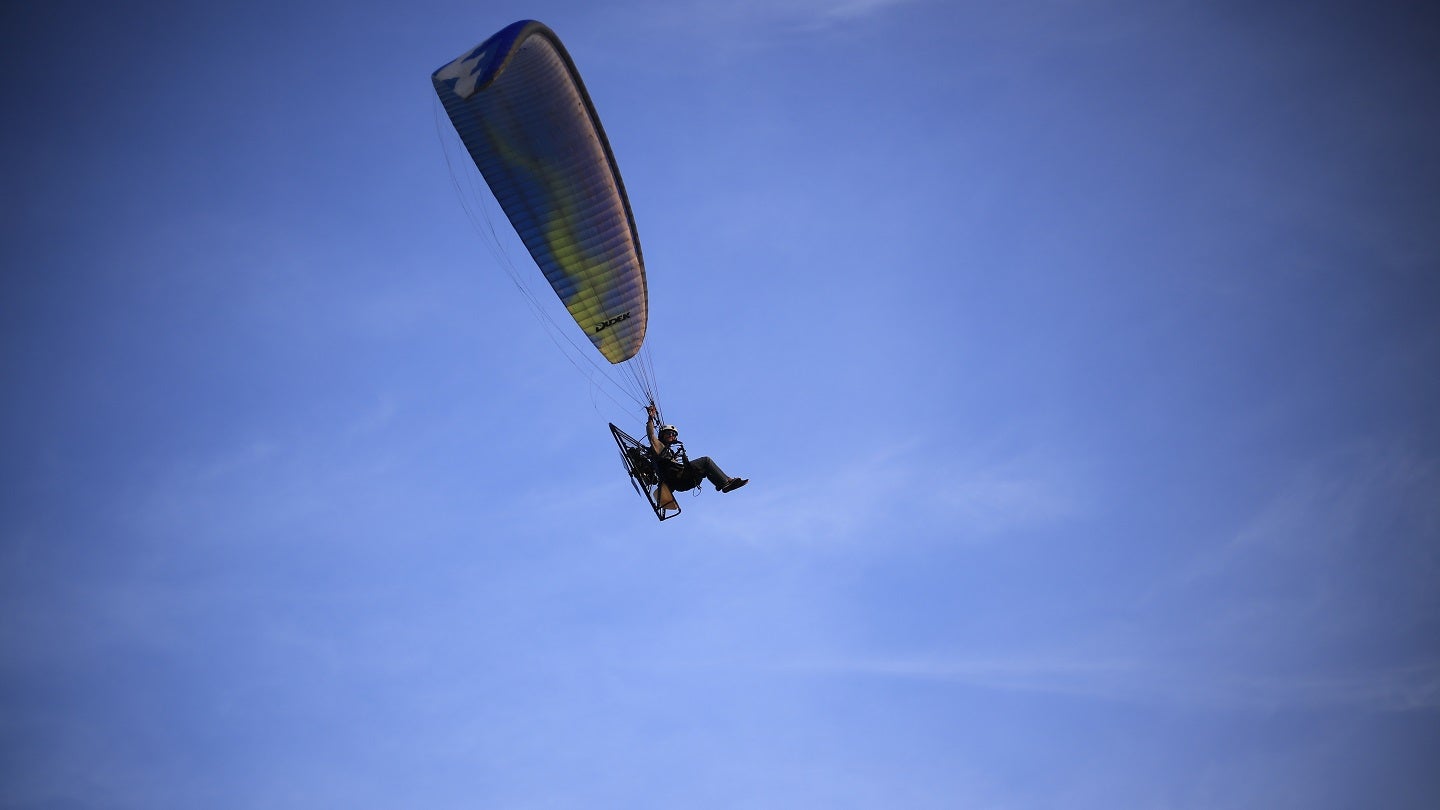
The UK’s Defence Science and Technology Laboratory (DSTL) will acquire five novel low-acoustic signature propellors for powered personnel infiltration-exfiltration systems, in what appears to be for paramotor flight, potentially for special forces or other clandestine operations.
In a 17 July contract announcement by the UK Government, the more than £221,000 ($283,000) deal was awarded to UK-based Parajet International by DSTL at Porton Down, a specialist science and technology location within the UK Ministry of Defence.
In a heavily redacted purchase order, DSTL states that it will acquire five unnamed items from Parajet, for a total cost of £221,411, although the UK Government announcement specifically mentions low-acoustic propellors.
At the time of publishing, Parajet International had not responded to questions posed by Airforce Technology regarding the contract.
Examination of Parajet International’s site reveals the company provides complete and sub systems for paramotors. Paramotoring harnesses the glide capability of paragliding with a body-worn motor, enabling greater endurance and control during flight.
Parajet’s products include the Zenith and Maverick propellors, which retail for a maximum of £345, while a complete Mav Max paramotor system costs £6,931.

US Tariffs are shifting - will you react or anticipate?
Don’t let policy changes catch you off guard. Stay proactive with real-time data and expert analysis.
By GlobalDataThe individual cost of each of the five low-acoustic propellors, for powered personnel infiltration-exfiltration systems, being manufactured for DSTL is £44,282.
In August 2022 the Royal Air Force (RAF) appeared to call a halt to a challenge that would see personnel conduct the paramotor transit of the entire coastline of the UK, due to unstable weather in Scotland. From May to August the RAF team completed 1107 miles of the 3200-mile trip.
The attempt was a first for the RAF and the UK Armed Forces, as no service currently has a paramotor team.



